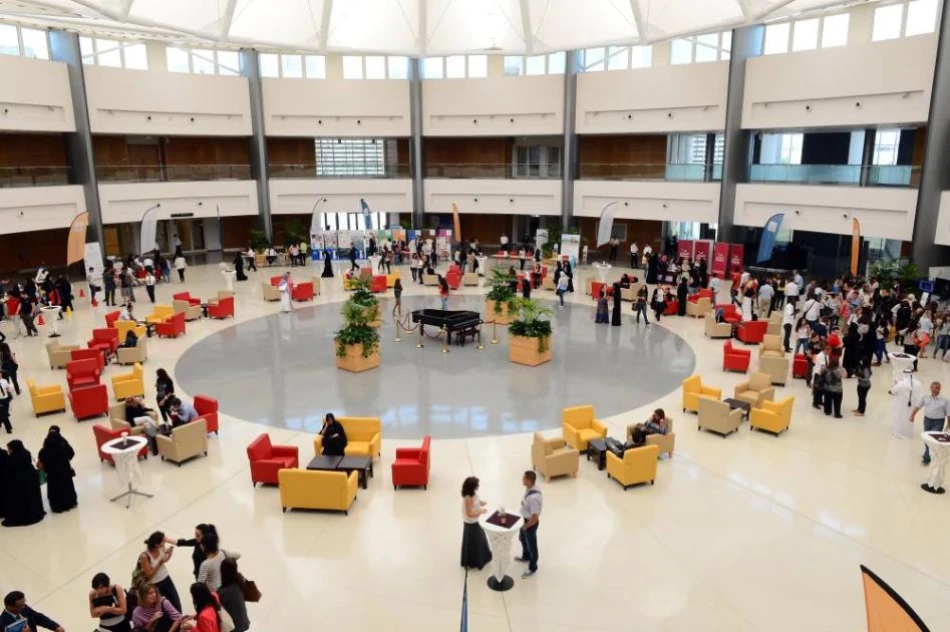
University Students Face Challenges in Balancing Time, Specialization, and Coordination for Field Training
University internships in the UAE are hitting some bumps, even though they're supposed to bridge the gap between classroom theory and real work experience. While some students are getting valuable hands-on training, others are struggling with short timeframes, mismatched placements, and limited opportunities. Here's what students and educators are saying about how to fix these issues.
Educational consultants stress that internships need to connect with real workplace demands. Career guidance directors say universities must do better at preparation and follow-up to ensure quality experiences. But students - who are at the center of all this - say they need genuine opportunities, not just box-ticking exercises.
Mona Al Junaibi, a psychology student at an Abu Dhabi university, had a solid internship experience at a local institution. She worked as a real social worker, interacting directly with students, caregivers, and teachers, plus handling office work like documenting data and writing reports. "We were doing the actual job of a social worker, which helped us understand what the profession really looks like," she said.
But even her positive experience had problems. "We only spent one week in each department, which isn't enough time to observe behaviors or study psychological changes. We need more time to understand the details, spot gaps, and suggest solutions." She also pointed out that students often get excluded from key tasks due to confidentiality concerns, even though they've signed all the required policies.
The numbers game is another issue. Shama Ali Al Nuaimi, a business administration student, noted that many training organizations only accept two students per college, despite having multiple departments that could handle more interns. She wants to see that number increase to five students instead of two, giving graduates broader exposure and more diverse career options.
Some students end up in completely irrelevant placements. Matar Saeed Al Zaabi, an electrical engineering student, completed his internship at an organization that had nothing to do with his field of study. "It didn't add any scientific or practical value worth mentioning," he said. This prevented him from gaining the hands-on experience that should complement his academic studies.
The flip side shows what can happen when things work well. Mohammed Khalifa Al Hawti, an IT student, found his internship challenging at first due to heavy workloads and responsibilities. But those initial difficulties turned into learning opportunities. "Despite the tough start, I managed to prove myself and got a job offer within a short time after beginning the internship," he said.
Mohammed Nazeef, an educational consultant and developer, explains why proper internships matter, especially for those entering the education sector. The real world operates very differently from university classrooms, and internships help students get past the fear of entering the field while understanding work priorities and implementation methods.
But there's a catch - internships need to be organized and built on clear, unified procedures to maximize benefits and enhance skills. The UAE's educational experience is developing rapidly, which means universities need to keep up by preparing graduates with advanced professional competencies.
Sylvie Voss, director of career guidance at Sorbonne University Abu Dhabi, points out the main challenges supervisors face when monitoring student training. The biggest issue is ensuring consistency and quality across diverse internship experiences, especially those not credited with academic credits. Credited internships get full supervision and include reports and evaluations from employers that factor into academic assessment.
The university works on strengthening monitoring and evaluation mechanisms while expanding partnerships with employers to ensure rich learning environments. They're also building flexible supervision models that balance academic requirements with changing job market needs.
Student preparation starts from day one during foundation year through workshops to enhance employment skills, lectures, and career counseling sessions. Throughout their studies, students participate in various practical activities including resume reviews, evaluating reliable job site profiles, mock interviews, and training modules like "Career Path Explorer."
For credited internships, preparation gets more intensive with mandatory sessions covering legal aspects, workplace ethics, and performance expectations. The goal is making sure students are ready for real workplace demands, not just academic exercises.
Nazeef suggests students should be able to conduct action research related to their field experience, especially since the period after internships but before graduation combines academic knowledge with practical experience. This could help students process what they've learned and contribute meaningful insights to their fields.
The bottom line is that internships work best when universities, employers, and students all take them seriously. That means longer placements, better matching between student specializations and internship opportunities, and genuine involvement in meaningful work rather than just observing from the sidelines.
Most Viewed News

 Omar Rahman
Omar Rahman






